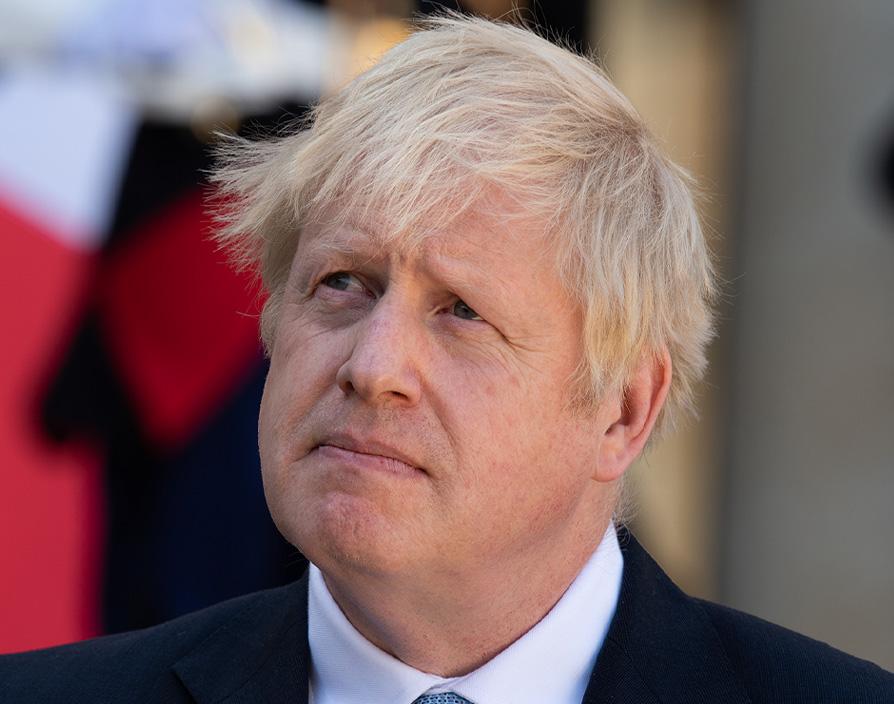Boris Johnson has today announced his resignation as Prime Minister. The PM was met with cheers from family and friends as he made his speech outside No 10 Downing Street today, adding that he intended to stay in office until his next successor is chosen. Boris Johnson thanked his wife Carrie and their children, and commended the staff of Downing Street, telling the crowd, “you, the British people, for the immense privilege you have given me. I know even if things can sometimes seem dark now our future together is golden.” How will his resignation affect UK businesses?
Mr Johnson made it clear that he intends to stay on until autumn as a “caretaker” PM – but it is not clear whether that will be the case. The Chancellor of the Exchequer, Rishi Sunak, and the Secretary of State for Health, Sajid Javid, announced their resignations on Tuesday. With a slew of ministerial resignations, business leaders have called for stability in a bid to find the next successor – with many fearing a plague of uncertainty and instability in the months to come.
Lord Rose, chair of supermarket chain Asda and a former boss of Marks & Spencer, said it was vital a new Prime Minister fill in the post, as Briton faces a perpetual cost of living crisis – citing it as a “serious” economic issue that needs to be addressed urgently. He said: “This has been too long in happening and it is unsustainable to continue with a hamstrung, lame duck prime minister into the autumn. There doesn’t seem to be anybody dealing with the serious issue of the economy. This political crisis has hamstrung everything.”
Millions of families across Briton are struggling to deal with rising costs of energy prices as winter approaches, with predictions of a possible recession. Tony Danker, director-general of the CBI business lobby group, said: “We now need the political vacuum to be filled at speed to protect people’s living standards, through action on business confidence, investment and growth. Getting the economy growing again has got to be the number one focus for all politicians.”
Meanwhile, Kitty Ussher, chief economist at the Institute of Directors, the UK employers’ group, spoke from the same hymn, adding: “What business hates most is uncertainty and instability, which heightens the sense of external risk. Having said that, we recognise that this is an issue for the Conservative Party to resolve. She said that the government’s priority “must be to give businesses the confidence to invest”.
Mr Johnson has appointed new members of the cabinet after multiple ministers handed in their resignations in the last 48 hours. Nadhim Zahawi has been appointed as the new chancellor on Tuesday evening to replace Rishi Sunak. Meanwhile, Greg Clark, the former business minister has replaced Michael Gove who was sacked by Mr Johnson on Wednesday evening.
The Institute of Directors (IoD) called for investment tax super-deduction to be made permanent, and also urged the government to rethink the planned corporation tax. Nadhim Zahawi said he would review the corporation tax rise – and has hinted that a rise from 19p to 25p next year could be reduced or scrapped. The Chancellor said he wanted to examine the planned increases on corporation tax to allow British businesses to remain competitive. Speaking to Sky News, Nadhim said on Wednesday evening: “I will look at everything. There’s nothing off the table. I want to be one of the most competitive countries in the world for investment.”
Archie Norman, the chair of Marks & Spencer and a former Conservative MP, believes Mr Johnson’s departure could pave the way for a stronger focus on Britain’s recovery, without putting Brexit at the forefront of every conversation. He said: “I first met Boris in 1994 when he was a journalist and he was a good colleague in my time in parliament. It was sad watching his regime degenerate. But this is now a great opportunity to embark on a new post-partisan era, to stop framing every question against the context of Brexit and to reach out across the water to bring together all the talents across the Conservative party to build a proper recovery plan for the UK economy. The public are thirsting for a new civility in public discourse. That means a more grown-up tone, straight-talking and respect for the truth, however unpalatable.”
Share via:








































